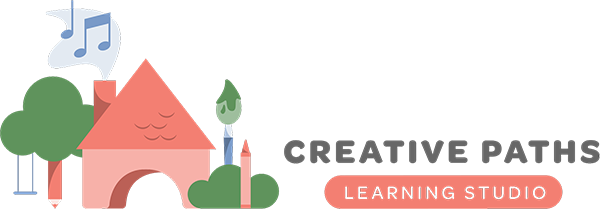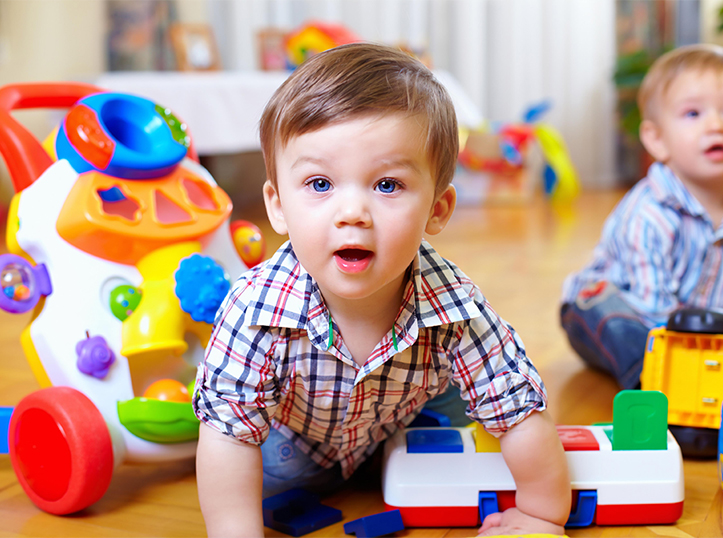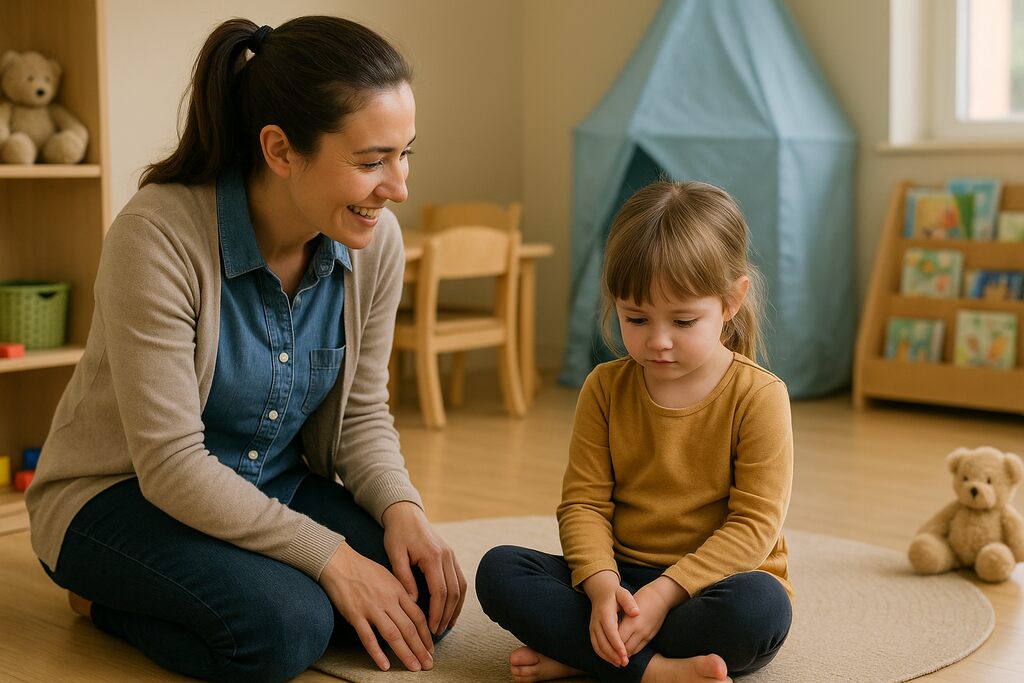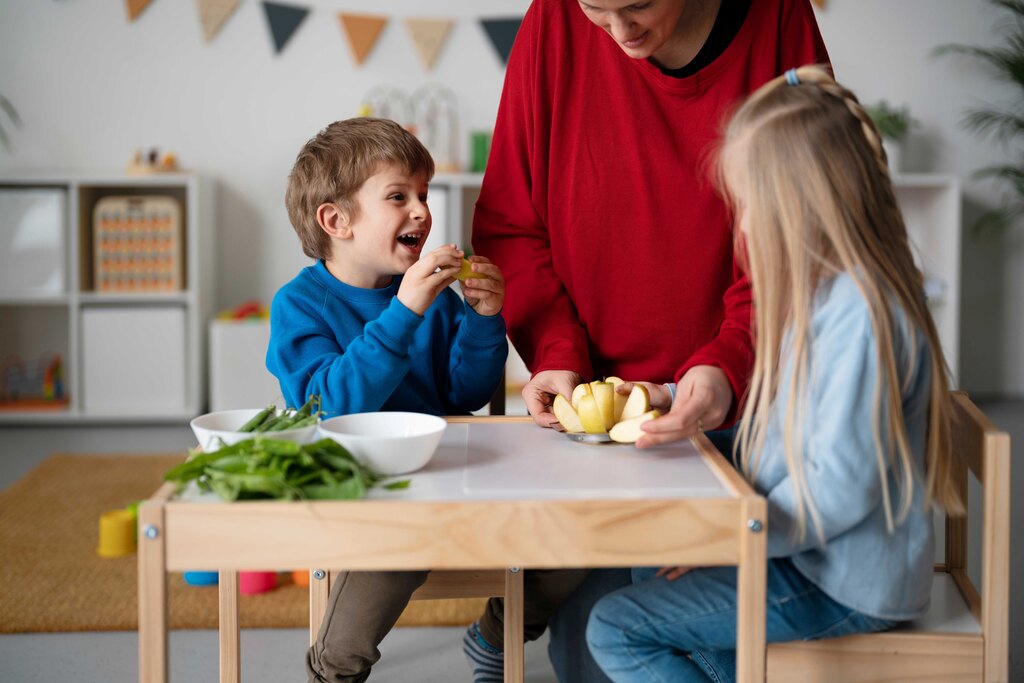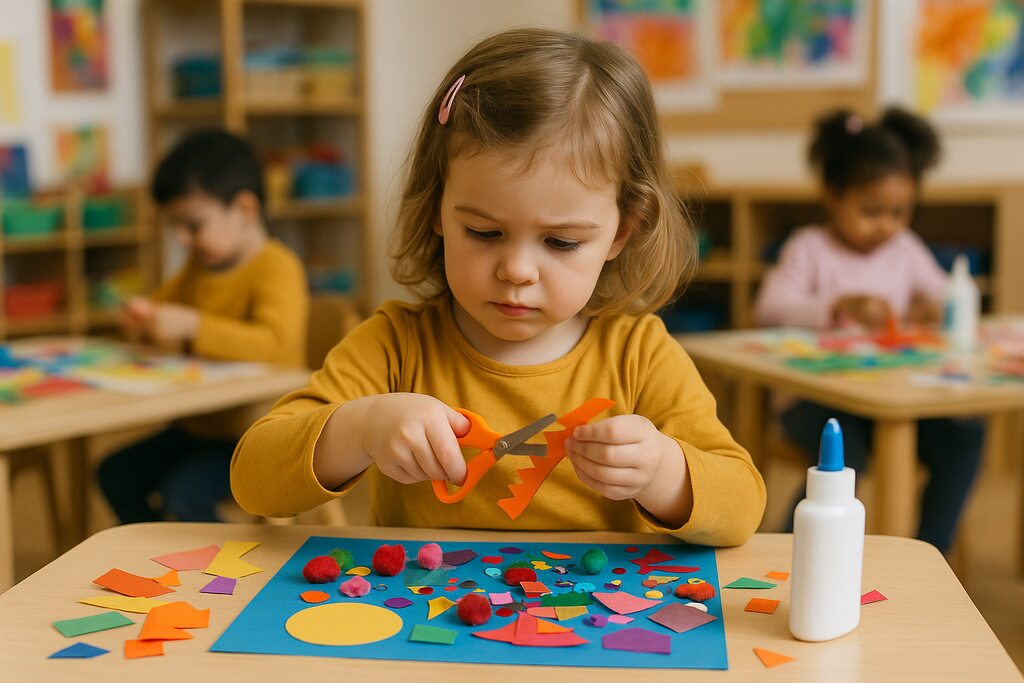By using our website, you agree to the use of cookies as described in our Cookie Policy
Early Childhood Education Info & Tips for Deerfield Area Parents
How Music Helps Young Children Learn at Deerfield Daycare Centers
Music changes how kids learn. It’s not just background noise in Deerfield daycares. Children sing, move, and play with it every day. Songs and beats help them pick up words, remember things, and connect with others. The right music makes a real difference in how children grow and interact.

Language Grows with Every Song
Children pick up words fast when music leads the way. Songs repeat key phrases. Melodies stick in the mind. Rhymes and beats make new sounds easier to remember. In the infant rooms, even the youngest babies respond. They babble along, mimic sounds, and light up when a familiar tune starts. Our teachers use music to introduce new vocabulary, model clear pronunciation, and encourage children to join in. The results show up quickly. More words, clearer speech, and stronger listening skills.
- Simple, catchy songs build vocabulary and help children practice new words.
- Melodies guide speech patterns and make inflection natural.
- Musical stories keep children focused and listening closely.
- Rhymes sharpen the ear for sounds and syllables.
- Movement songs tie language to action, making words stick.
In the infant care program, music isn’t an afterthought. It’s part of every day. Babies and toddlers hear songs during play, meals, and transitions. They respond with smiles, claps, and early words. The difference is clear. Children who sing and move with music speak up sooner and with more confidence.
Memory and Thinking Skills Get a Boost
Music makes facts stick. Children remember what they sing. Counting songs, alphabet tunes, and simple chants turn abstract ideas into something real. When a child claps along to a beat or repeats a pattern, the brain builds connections. These connections support memory, attention, and problem-solving. We see it every day. Children who sing their numbers or letters recall them faster and use them more confidently.
- Counting songs lock in number order and basic math ideas.
- Alphabet melodies make letter names and sounds easy to recall.
- Beat games sharpen focus and help children follow directions.
- Repeating patterns in music builds early math and sequencing skills.
During pre-kindergarten activities, music becomes a bridge to more complex thinking. Children sing about days of the week, seasons, and shapes. They use sticks to tap out patterns. Teachers pick songs that match what children are learning, so every tune reinforces a key idea. The impact lasts. Children who learn with music remember more and stay engaged longer.
Music Builds Social Skills Fast
Group music time changes the mood in any classroom. Children gather in a circle, share instruments, and sing together. These moments teach more than just songs. They build trust, cooperation, and confidence. Children learn to wait their turn, listen to others, and celebrate each other’s efforts. Shy children find their voice. Outgoing children learn to lead and support friends. The social growth is real and visible.
- Circle songs create a sense of belonging and community.
- Partner dances and games teach cooperation and respect.
- Group performances give children a chance to shine and support each other.
- Musical games make turn-taking and sharing second nature.
- Shared instruments encourage teamwork and patience.
In the toddler program, music is the glue that holds the group together. Children learn to express feelings, solve small conflicts, and celebrate group achievements. Our teachers see friendships form and confidence grow, all through the power of shared music.
Transitions Run Smoothly with Music
Music sets the rhythm at our preschool. Simple songs mark each part of the day. A cleanup melody means toys go back on shelves. A lunch tune brings kids to the table. These sound signals work better than words - children move naturally from one activity to the next.
Teachers use these musical cues to keep the day flowing. Kids catch on fast, learning to read the room through sound. They pack up toys when the cleanup song starts, grab their coats at the outdoor tune, and find their mats at naptime - all without being told. This builds confidence and makes every transition smoother.
Tools That Make Music Real
Children need more than just voices to explore music. Hands-on tools bring beats and melody to life. Age-safe percussion instruments, sticks, and bells let children experiment with sound. Scarves and ribbons add movement and color. Story props turn songs into fun activities. Sound stations invite children to create, listen, and find new things. These tools support both fine and gross motor skills, making music accessible to every child, no matter their age or ability.
- Drums, shakers, and bells for hands-on beat play
- Scarves and ribbons for movement and dance
- Props that turn stories into interactive songs
- Sound stations for exploration and creativity
The creative curriculum brings these tools into every classroom. Creative Paths Learning Studio chooses instruments and props that match each child’s stage of development. The result: children who are eager to participate, experiment, and express themselves through music.
Experience the Power of Music in Early Learning
Ready to give your child the gift of musical learning? Contact Creative Paths Learning Studio at 847-372-0079 or schedule a tour to see our music-enriched programs in action.
‹ Back
